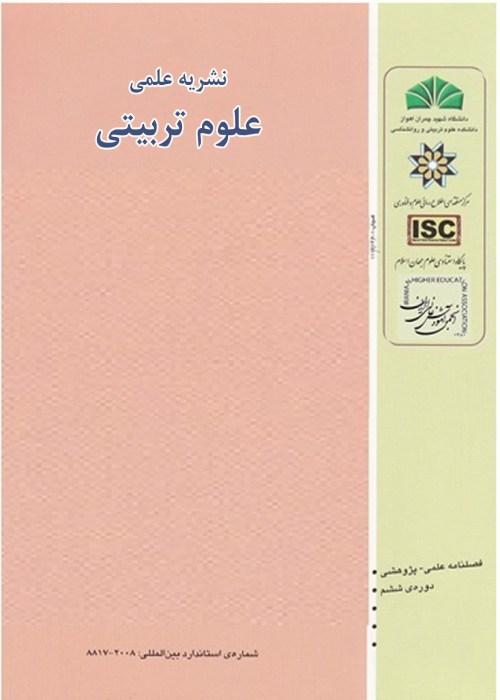Evaluation of Paradigmic interests of faculty members in the field of Curriculum Studies : An approach to study of science philosophy
Faculty members in the field of Curriculum Studies as the experts in the humanistic and educational sciences, are the main agents of development in the curriculum field according to their philosophical orientations or paradigmic interests. Therefore, recognizing their paradigmic interests and approaches can determine their educational, research, and publication orientations. It can also define the paradigmic direction of science development in the field of Curriculum Studies. Methodology The aim of this descriptive-survey study was to recognize the paradigmic interest of the faculty members in the field of Curriculum Studies. After calculating the reliability and validity of the instruments, paradigmic interesst of faculty members wre studied based on the five Critical, Interpretative, Post-modern, Positivist, and Islamic paradigms with regard to the six paradigmic assumptions about Ontology, Anthropology, Epistemology, Methodology, Education and Curriculum .The participants of the study were included all the faculty members of the field of Curriculum Studies in all Iranian state universities, 58 of whom chosen by a convenience sampling method . Results Analyzing the results by using the Friedman inferential tests revealed that in the five paradigmic assumptions,Islamic paradigm had the highest mean, and in content and ontological assumptions, Critical paradigm had the highest mean, and in the dimentions of teaching strategies and aims, Interpretative paradigm had the highest mean among the faculty members of Curriculum Studies. Moreover, the results and analysis of variance of repeated measures showed that although there was a significant difference between the approaches of faculty members toward the five paradigms, they did not have a dominant paradigm orientations. Conclusion Based on the research findings , it can be claimed that there is no paradigmic coherence among the faculty members of curriculum studies , and they have not a fixed approach in their paradigmic assumptions with regard to ontology, epistemology, anthropology, methodology , education and curriculum elements. Therefore , it can lead to some contradictions in the faculty members theoretical viewpoints , research and educational approaches. The findings also showed that faculty members do not have a dominant paradigm and one paradigm cannot be selected as the main paradigm with certainty. However, it can be generally stated that the faculty members mostly tended to adhere to Islamic and Critical paradigms. Anyway, the final conclusion is that Curriculum studies teachers lack coherence in their paradigmatic intereste.
- حق عضویت دریافتی صرف حمایت از نشریات عضو و نگهداری، تکمیل و توسعه مگیران میشود.
- پرداخت حق اشتراک و دانلود مقالات اجازه بازنشر آن در سایر رسانههای چاپی و دیجیتال را به کاربر نمیدهد.




